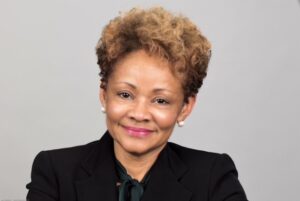
Change and The Baggage I Bring To This Collaboration
Last year I participated in a Colloquy at Wabash entitled “Teaching the Black Presence.” Not long after, for the first time in my career, a white male New Testament scholar, Dan Ulrich, approached me about teaching an African American biblical interpretation course for students, primarily white, attending Bethany Theological Seminary in Indiana; for some reason I imagined them to be primarily male.
Dan had read and assigned students to read the essays I wrote in True Our Native Land (2007). By Dan’s own admission, he might have been “scared away by the strong hermeneutics of suspicion developed” in my recent work, much of which he has now read for this course. That reflects change. In my experience it is not unusual for scholars in biblical studies to be more familiar with the work of black males than with the scholarship of black females, but that is changing.
This collaboration between Dan and me is novel for both of us, and taking it online in the pandemic brings its own challenges. We each carry our own ‘baggage,’ and we are committed to working through it to create a pedagogical experience that will enhance learning for the students enrolled and for ourselves. I am the teaching faculty for the course, the expert in African American and womanist biblical interpretation, although my dissertation and the book I published from it are readings of the Acts of the Apostles. I am a biblical scholar--this is often lost on some colleagues across the academy, as well as students, in my experience. So, as we navigate our way through this course—become acquainted with each other as scholars and human beings—our ‘baggage’ will trip us up at times. But hopefully we will also shed some ‘baggage.’ This is not an easy journey for either of us because of experiences, the ways that we have been socialized in the academy and society, both of which are racialized and gendered in favor of white males and the scholarship they do. We both have been shaped in ways we can and cannot immediately identify. In a meeting during the Colloquy with our consultants (Dr. Marcia Riggs and Dr. Mary Hess), Mary provided feedback to Dan on his first draft blog. It was feedback that I withheld because I did not believe Dan could receive it from me. This is my baggage.
After Mary spoke, I confessed that I had a similar impression, but did not want to ‘hurt Dan’s feelings.’ But as I reflect now that was not the reason I withheld my critique. I believed that Dan would not receive my critique, and so why offer it. I was guilty of what I and other black scholars and scholars of color believe (and have experienced) too many white scholars to be guilty of, which is of not providing needed critical feedback to black students and other students of color, of being patronizing and assuming they can’t handle it or are not up to doing the work. I never fail to provide critical feedback to students, regardless of race-ethnicity, gender, sexuality, and so on. But I neglected in Dan’s case to offer useful critique, and my failure was not beneficial to him. I didn’t give Dan the chance to receive my feedback with grace and collegiality until after the white woman scholar offered hers. Going forward I must be honest with Dan, tactful, but honest in offering critique, because he has said he is participating in this collaboration as a learner and peer. This change would reflect neighbor-love informed by a self-love that values critical feedback as necessary for success.
As a learner-collaborator, I am grateful for the idea from our consultants to ask students to write more than a two-paragraph statement describing the contexts that impact their selection and reading of a pericope. Our consultants have encouraged me to ask students to write an extended hermeneutical autobiography that will assist them in thinking more critically about their contexts and how culture and social identities, for example, shape them. This collaboration is not easy, but it is giving me life and pedagogical strategies and ideas.
Leave a Reply